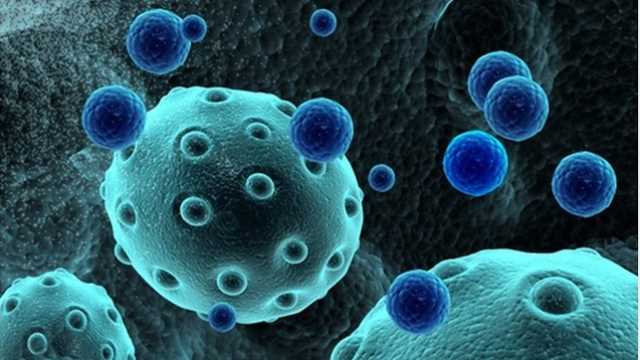
What is Exosome therapy?
Exosomes are extracellular vesicles (that’s particles that release naturally from a cell that cannot replicate) that are responsible for certain genetic information, otherwise known as Exosomes cell to cell communication. They transport molecules that are essential regulators of intracellular information between close and distant cells.
Exosomes play a vital role in the communication and rejuvenation of all the cells in our body. Despite not being a cell, Exosome has proven to be quite important in maintaining a healthy cellular terrain.
Exosomes are typically made by growing stem cells in culture. Taking the media where they grow and then getting rid of the stem cells. Due to the small size of Exosomes, the media is then ultra-centrifuged to concentrate the exosomes.
Exosomes contain different molecular constituents of their cell origin; these include proteins and RNA. Meanwhile, the Exosomal proteins composition varies with the cell and tissue of the origin; most Exsomes contains an evolutionarily conserved common set of protein molecules.
HOW TO ISOLATE EXOSOME FROM CULTURE STEM?
Exosomes can be isolated from culture stem cell using the method Ultracentrifugation. Often combined with sucrose density gradients, they float the relatively low-density Exosomes from other microvesicles. Cells and larger particles are removed by sequentially increasing the centrifugal forces. These procedures can take up to 30hours and requires an ultracentrifuge, extensive training and specialized equipment.
This method provides highly enriched exosomes but requires specialized training and equipment.
Now, this is how Exosomes works:
Exosomes carry genetic information. Protein and messenger RNA, they can relay this information, letting cells know when to and how to react. This Exosomes cell-to-cell communication is possible due to its unique shape and content.
Exosomes from young stem cells rejuvenate the older cells and assist in calming an overreactive immune system or modulating it to respond in a coordinated and more effective fashion.
WHAT IS EXOSOME THERAPY?
Exosome therapy is one of the hottest areas of regenerative medicine treatment. Researchers have given us valuable insight into the practical functionality of exosomes. While stem cells are usually responsible for the rejuvenation of older cells, they may not be able to supply all the information needed. A clean home is a healthy home according to www.couturekleen.com/ maids from Washington. So supporting Exosome function could have a greater positive effect, by providing a new piece of information to enhance the healing process.
Exosome therapy is a minimally invasive procedure commonly used in orthopedic injuries, for anti-aging and some other degenerative diseases. Exosomes treatment contains growth factors, messenger RNA, micro RNA, cytokines and other biologically active molecules in conjunction with stem cell therapy to speed up healing benefit.
Exosome therapy can be injected into the affected area like in orthopedic injuries or given intravenously for anti-aging.
This Exosome injection is administered directly into the affected area, and the dosing for every patient varies, and there is no set protocol.
Exosomes treatment is gaining popularity recently, due to its ability to transfer molecules from one cell to another via membrane vesicle, therefore influencing the immune system, such as dendrite cells and B cells.
What is exosome therapy used for?
HAIR LOSS: Exosomes injection can be used to regrow hair loss due to its growth factor content. When injected, Exosome will trigger healing, cell stimulation and natural regeneration of these hair follicles. Exosome hair loss therapy is cutting-edge in hair restoration. According to research, there is a positive relationship between Exosomes and Hair loss. Exosomes are ideal for people with thinning hair, excessive shedding or hair loss proper. This is because Exosomes are regenerative cells that can heal, repair, stimulate and restore cells and tissues.
LYME DISEASE: Exosomes may help to regulate processes in the body, and may also be beneficial to patients with Lyme disease. Lyme disease is a very complex disease, which compromises the immune system. Many Lyme patients suffer from dysfunction of the mast cells, increasing their inflammatory response and metabolic function. Incorporating Exosomes treatment in their treatment regimen may help break the inflammatory response and provide the body with necessary cellular information to facilitate healing.
ARTHRITIS: Arthritis as we all know, is the joint inflammation resulting from an autoimmune disease. Although various types of treatment are available to alleviate symptoms, no known therapy has been confirmed effective in reversing the disease progression.
In the field of regenerative medicine today, with the discovery of extracellular microvesicles, especially exosomes, many researchers have been able to offer a more exciting alternative on this subject matter. Exosome arthritis therapy is believed to play a more substantial role in bone and cartilage remodeling.
In a nutshell, Exosomes provides enormous potential in the field of regenerative medicine. You can advance your understanding of Exosomes and its relationship with stem cell in this course. This is an online-course https://www.cellulartherapycourse.com/ where physicians and medical personnel can get insight and deep understanding of this novel science (Exosome).
